BOOKS

The Art of Empathy: A Complete Guide to Life’s Most Essential Skill
– Karla McLaren
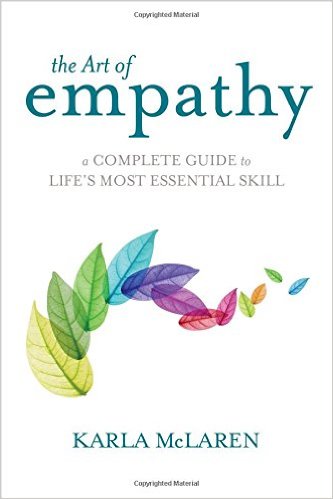 What if there were a single skill that could directly and radically improve your relationships and your emotional life? Empathy, teaches Karla McLaren, is that skill. With The Art of Empathy, she teaches us how to perceive and feel the experiences of others with clarity and authenticity—to connect with them more deeply and effectively.
What if there were a single skill that could directly and radically improve your relationships and your emotional life? Empathy, teaches Karla McLaren, is that skill. With The Art of Empathy, she teaches us how to perceive and feel the experiences of others with clarity and authenticity—to connect with them more deeply and effectively.
Informed by current insights from neuroscience, social psychology, and healing traditions, this book explores:
Why empathy is not a mystical phenomenon but a natural, innate ability that we can strengthen and develop
How to identify and regulate our emotions and boundaries
The process of shifting into the perspective of others
How to provide support in a sensitive and healthy way
Insights for navigating our hyper-connected social landscape
Targeted chapters for improving family, workplace, and intimate relationships
Ways to expand our empathy to our community, global levels of society, and the natural world
Empathy, reflects Karla McLaren, is the skill that builds bridges— a skill that not only creates connection, but that helps us to be more effective in all areas of our lives.
I’m Sorry to Hear That: Real Life Responses to Patients’ 101 Most Common Complaints About Health Care
– Susan Keane Baker, Leslie Bank
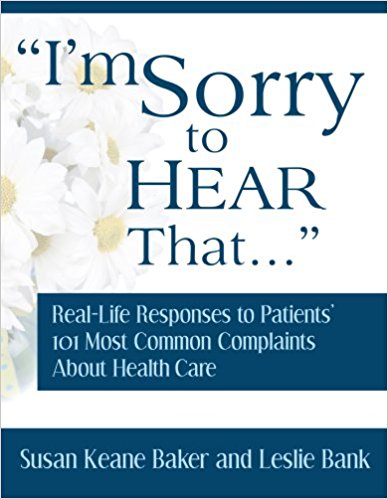 From the patient’s perspective, a complaint about healthcare or service is an urgent statement of fact. “I am here where I don’t want to be”, “I am frightened and unsure what will happen next”, “I put my trust in you, and now something is wrong”, “How can I be sure I will be okay?” When you respond to a patient’s complaint, you are responding to the patient’s sense of helplessness and anxiety. The service recovery scripts offered in this book can help you recover a patient’s confidence in you and your organization. “I’m Sorry to Hear That..” Real Life Responses to Patients’ 101 Most Common Complaints About Health Care provides you with: More than 300 responses you can choose from when patients complain about billing, service quality, their environment, your colleagues and communication. A training resource for staff education programs. A fast way to help new staff members feel comfortable responding to complaints. A tangible tool provided to staff to demonstrate your organization’s commitment to service excellence. Suggested wording that can be incorporated into written responses to patients. Ideas that you can use today to respond to the 101 most common complaints about health care. Authored by Susan Keane Baker and Leslie Bank
From the patient’s perspective, a complaint about healthcare or service is an urgent statement of fact. “I am here where I don’t want to be”, “I am frightened and unsure what will happen next”, “I put my trust in you, and now something is wrong”, “How can I be sure I will be okay?” When you respond to a patient’s complaint, you are responding to the patient’s sense of helplessness and anxiety. The service recovery scripts offered in this book can help you recover a patient’s confidence in you and your organization. “I’m Sorry to Hear That..” Real Life Responses to Patients’ 101 Most Common Complaints About Health Care provides you with: More than 300 responses you can choose from when patients complain about billing, service quality, their environment, your colleagues and communication. A training resource for staff education programs. A fast way to help new staff members feel comfortable responding to complaints. A tangible tool provided to staff to demonstrate your organization’s commitment to service excellence. Suggested wording that can be incorporated into written responses to patients. Ideas that you can use today to respond to the 101 most common complaints about health care. Authored by Susan Keane Baker and Leslie Bank
From Detached Concern to Empathy: Humanizing Medical Practice
– Jodi Halpern
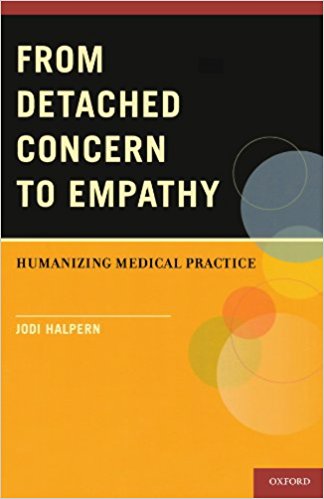 Physicians recognize the importance of patients’ emotions in healing yet believe their own emotional responses represent lapses in objectivity. Patients complain that physicians are too detached. Halpern argues that by empathizing with patients, rather than detaching, physicians can best help them. Yet there is no consistent view of what, precisely, clinical empathy involves. This book challenges the traditional assumption that empathy is either purely intellectual or an expression of sympathy. Sympathy, according to many physicians, involves over-identifying with patients, threatening objectivity and respect for patient autonomy.
Physicians recognize the importance of patients’ emotions in healing yet believe their own emotional responses represent lapses in objectivity. Patients complain that physicians are too detached. Halpern argues that by empathizing with patients, rather than detaching, physicians can best help them. Yet there is no consistent view of what, precisely, clinical empathy involves. This book challenges the traditional assumption that empathy is either purely intellectual or an expression of sympathy. Sympathy, according to many physicians, involves over-identifying with patients, threatening objectivity and respect for patient autonomy.
How can doctors use empathy in diagnosing and treating patients without jeopardizing objectivity or projecting their values onto patients? Jodi Halpern, a psychiatrist, medical ethicist and philosopher, develops a groundbreaking account of emotional reasoning as the core of clinical empathy. She argues that empathy cannot be based on detached reasoning because it involves emotional skills, including associating with another person’s images and spontaneously following another’s mood shifts. Yet she argues that these emotional links need not lead to over-identifying with patients or other lapses in rationality but rather can inform medical judgement in ways that detached reasoning cannot. For reflective physicians and discerning patients, this book provides a road map for cultivating empathy in medical practice. For a more general audience, it addresses a basic human question: how can one person’s emotions lead to an understanding of how another person is feeling?
“Jodi Halpern presents a scholarly and cogent exposition of the philosophic underpinnings of the concept of empathy may be rightly viewed as a seminal work in developing a scholarly understanding of the subject of empathy and will assist in the development of sound training and evaluation methods for imparting this skill to physicians.” – Sharon K. Hull, MD JAMA
“I would recommend this book not as a manual, but as a vital reminder of how things should be, and as an insightful and philosophically educational analysis of how things probably are for the luckiest patients in our practice and hospitals.” – Philip Berry, British Medical Journal
“This is a beautifully written and beautifully reasoned book. Physician-ethicist Jodi Halpern crafts one of the finest descriptions available of psychiatry’s advance toward empathic involvement with patients. Intertwining psychiatry and ethics is no easy task. However in Halpern’s hands, a blend of formal research, philosophical modeling, and straight talk shows how neatly psychiatry and ethics work together.” – Philip Candilis, M.D., Psychiatric Services
“This is an important book. I recommend it to physicians and members of medical faculties for whom its subject matter is important. It is a serious essay on subjectivity, a topic about which we will be seeing more in the coming years. It repays the work of reading it.” – Eric Cassell, M.D., The New England Journal of Medicine
“This lovely volume fixes on a profound truth in medicine: to the degree we are moved by our patients suffering we are better able to help them. The age of proteomics and genomics is the age of ‘objective reality’, yet for the patient it is all about humane empathetic care. Halpern in this scholarly and wonderful readable volume shows us that empathy is just as critical for the physician and without it healing cannot begin. This book is a must read for all of us with an interest in medical practice.” – Abraham Verghese MD, author of CUTTING FOR STONE, Professor of Medicine, Stanford University
Attending: Medicine, Mindfulness, and Humanity
– Dr. Ronald Epstein M.D.
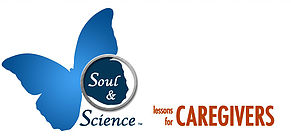
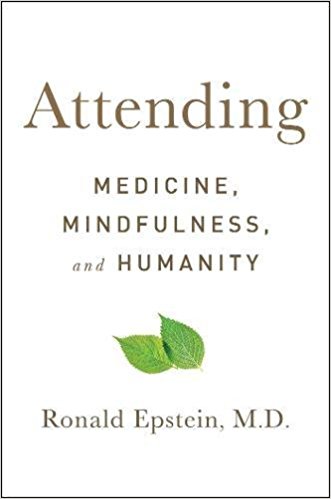 The first book for the general public about mindfulness and medical practice, a groundbreaking, intimate exploration of how doctors think and what matters most—safe, effective, patient-centered, compassionate care—from the foremost expert in the field.
The first book for the general public about mindfulness and medical practice, a groundbreaking, intimate exploration of how doctors think and what matters most—safe, effective, patient-centered, compassionate care—from the foremost expert in the field.